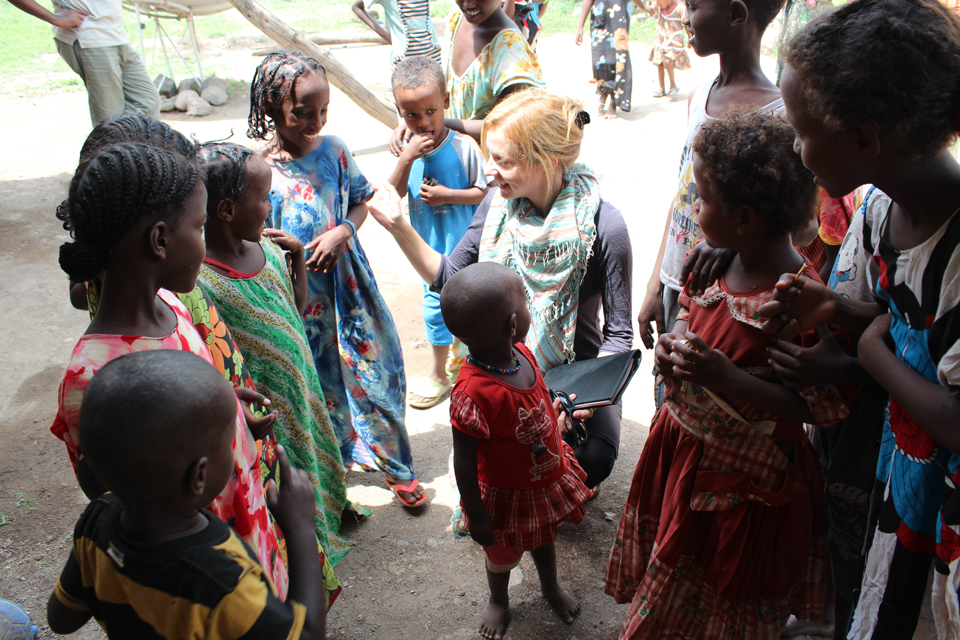One man’s view of feminism
Posted by Daniel Hoornweg on April 05, 2017

Samantha Nutt, the CEO of War Child, physician, professor and frequent media spokesperson, gave a talk last week at UOIT titled When Women Lead billed as “an engaging, thought-provoking and entertaining examination of the challenges women still face in the world – and how women (and men) can advocate for change.”
This was a rare event on campus where women out-numbered men – almost three to one. That was unfortunate because the talk was particularly relevant for men, especially those in the STEM sector. Any good engineer will tell you that technology is usually the easy part, getting the social license is the challenge, an area where women tend to excel.
As engineers we watched female enrollment in medical schools grow (more than half female before the turn of this century and now around 60% in Canada). Women accounted for just 5% of lawyers in Canada in 1971. Today more than 60% of Canada’s young lawyers are women (source). Yet only 12% of Canada’s practicing engineers are women. Female enrollment across engineering schools in Canada peaked at 20.7% in 2001, and then declined! A slow rebound is underway but female enrollment still has not surpassed the 2001 peak. At UOIT our engineering faculties have less than 10% female students and UOIT has the highest overall share of male students in Canada (only RMC is higher).
Dr. Nutt suggested feminism is a process, not a history lesson; and that the women’s movement is unfinished everywhere. So true. It is reflected in the low number of women going into and remaining in STEM fields; the plight of Canada’s First Nations women; and the scarcity of women on corporate boards. Much work remains because equality benefits everyone, not just one gender. Men need to get out and push.
As I listened to Nutt speak, I wondered why I was one of only about six men who turned out for the talk and the only one teaching in STEM. And what brought me here? Perhaps it’s the scar I, with all Canadian engineers (especially men) bear from the 1989 massacre of 14 women at Ecole Polytechnic (the largest mass-murder in Canada’s history). Or perhaps, it’s my good-fortune to have a daughter who’s a recent biomedical engineer graduate, and another, who, along with her mother, works full-time trying to help engineers better communicate (which makes for lots of jokes over dinners). Or perhaps it was Nutt’s point made during the talk that after the age of 40, permissions are what you grant yourself, not what you seek. Whatever the reason, Nutt’s talk struck me as particularly poignant – men in the technical and financial fields need to be much more welcoming to women. There are many excuses and obfuscations, but as much as anything, and in the end, it is the old men (over 40) in positions of power who need to signal a willingness to share it.
One man who already has is Gord Downie. Nutt shared the story of how her NGO War Child got its big break at a free concert on a warm Winnipeg Saturday afternoon of September 2000, headlined by the Tragically Hip. Samantha’s pleas to the crowd for financial support were having little effect. Hearing her despondency just before going on, after their first song, Downie simply said to the raucous crowd of 80,000 Hip fans, “Put the money in the jar”. In a few minutes, more than $300,000 was collected.
We need a similar simple statement, “Treat the women equally".
War Child helps bring to light, and where possible ameliorate, the tragic toll that conflict has on the world’s children and their mothers. War of course is hard on soldiers as rows on rows of graves attest. As Canada commemorates the 100-year anniversary of Vimy Ridge this month, and the sacrifices of soldiers remembered, the cost of war and conflict on children and their mothers should be recognized as well.
Filed under: Sustainability 101